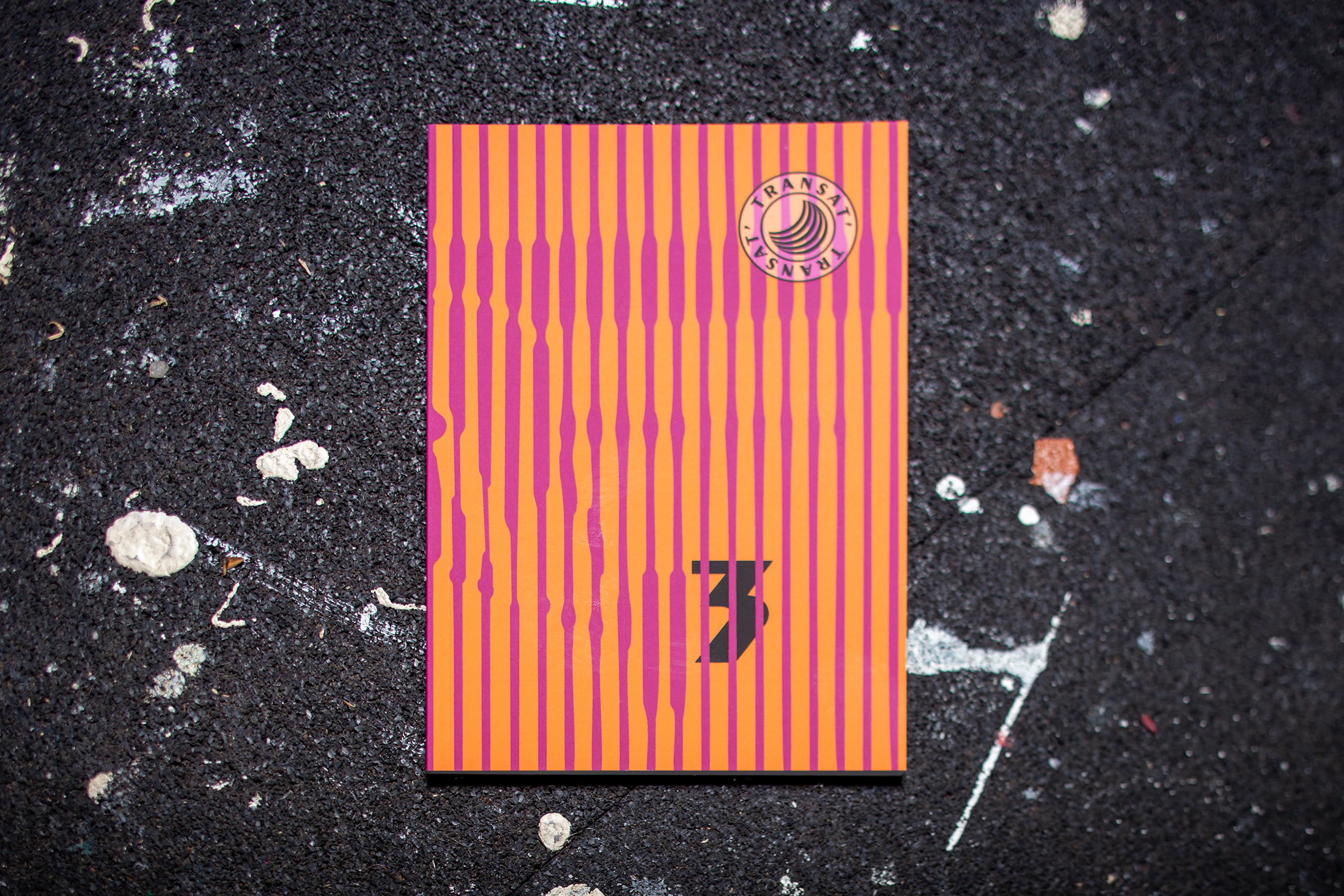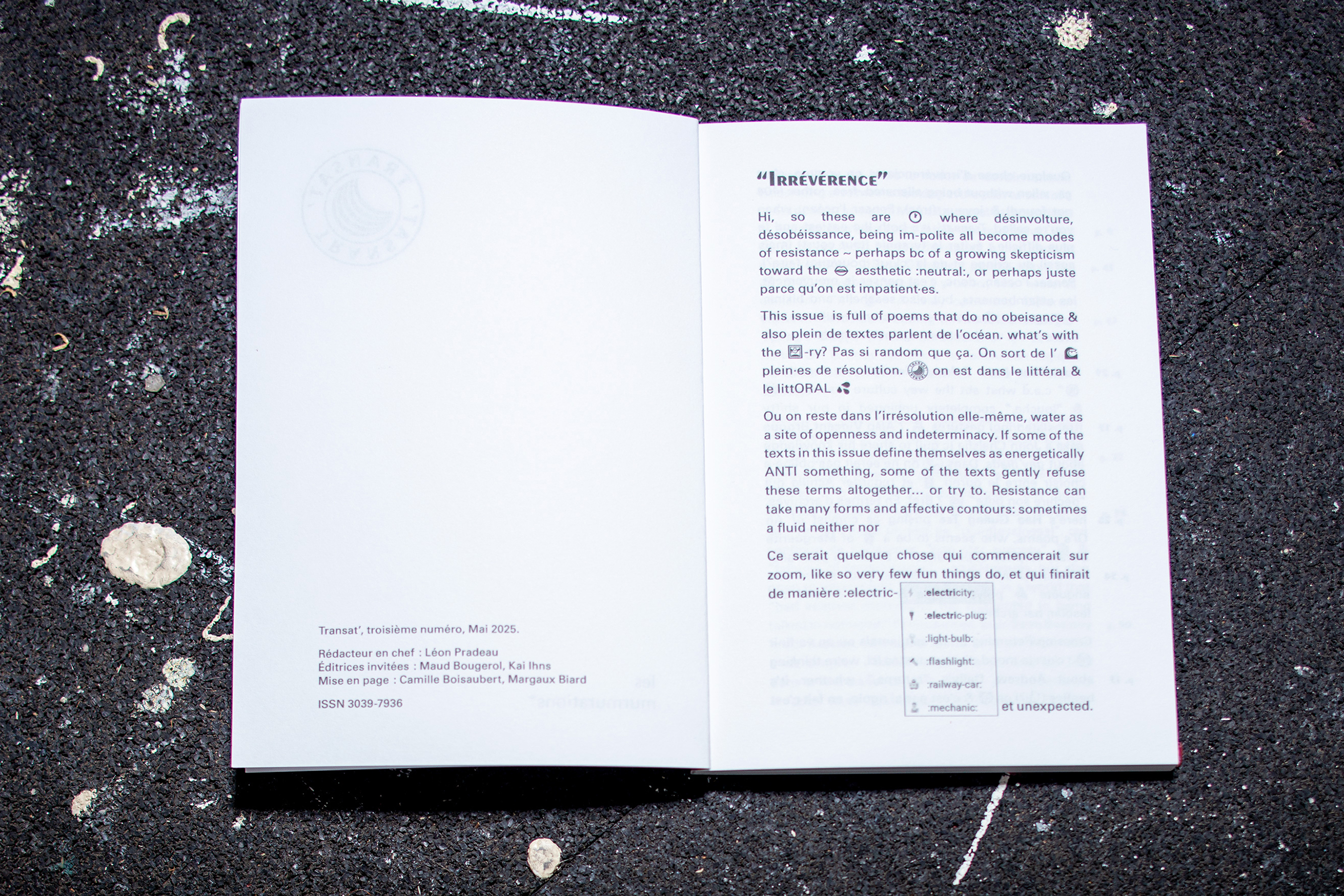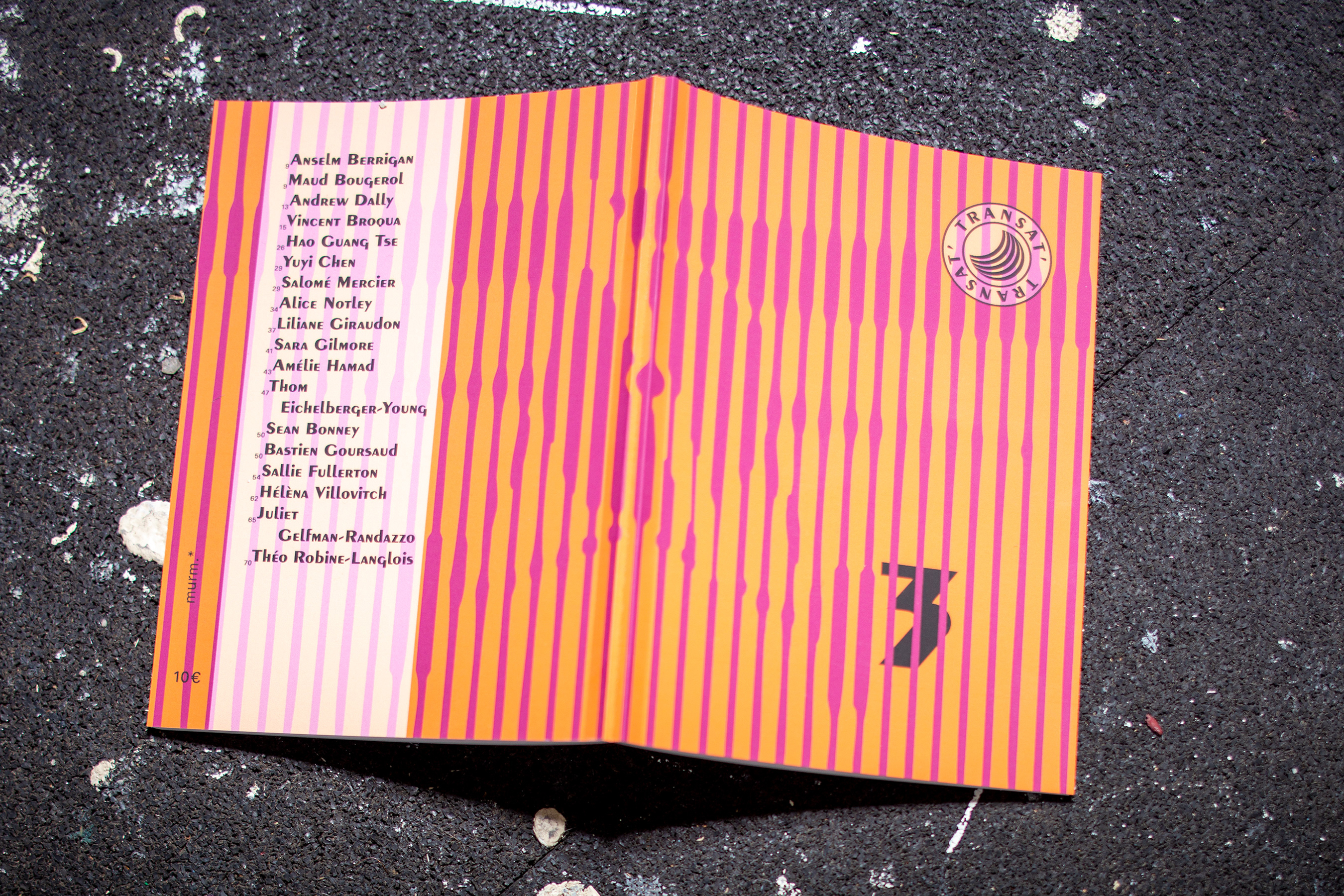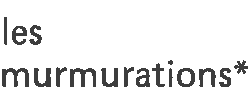Transat’ 3
avec Anselm Berrigan, Maud Bougerol, Andrew Dally, Vincent Broqua, Hao Guang Tse, Yuyi Chen, Salomé Mercier, Alice Notley, Liliane Giraudon, Sara Gilmore, Amélie Hamad, Thom Eichelberger-Young, Sean Bonney, Bastien Goursaud, Sallie Fullerton, Hélèna Villovitch, Juliet Gelfman-Randazzo, Théo Robine-Langlois.
Rédacteur en chef: Léon Pradeau
Éditrices invitées: Maud Bougerol, Kai Ihns
18 x 13 cm, 72 pages,
200 exemplaires.
Editions les murmurations, 2025.
“Hi, so these are 🕐 where désinvolture, désobéissance, being im-polite all become modes of resistance ~ perhaps bc of a growing skepticism toward the 👄 aesthetic :neutral:, or perhaps juste parce qu’on est impatient·es.
This issue is full of poems that do no obeisance & also plein de textes parlent de l’océan. what’s with the 🖼-ry? Pas si random que ça. On sort de l’ 🌊 plein·es de résolution. On est dans le littéral & le littORAL 💦
Ou on reste dans l’irrésolution elle-même, water as a site of openness and indeterminacy. If some of the texts in this issue define themselves as energetically ANTI something, some of the texts gently refuse these terms altogether… or try to. Resistance can take many forms and affective contours: sometimes a fluid neither nor
[...]
Quelque chose d’irrévérencieux, en somme, c’est ça. :alien without being alienated. free. :other (404 not found) & joyeux (très). Penser l’océan, when you’re called Transat’, it’s both the easiest and le plus difficile ; éviter la tyrannie (tout court) (mais aussi) du :cringe et de la :clout (pour/quoi faire?). Penser l’océan, donc, c’est penser le mouvement, les enjambements, but also seashells and bikinis, 🍆illages et 🥩stacés, sadness and resilience, the noise of the wash echoed against les mots.
[...]
In this issue, we’re wondering how art can reckon with the received materials and terms of its world(s), bleak as they often are, without losing contact with what it is to be alive. Is it irresponsible to allow such liveliness into art in 2025? Is it only a fantasy to think we have any contact with “aliveness” at all? Maybe. Is it the only reason to still do art? Maybe. État complexe. L’ironie, l’absurdité, l’insouciance, et d’autres appareils bien connus are of interest to us. But we also wonder about the potentials of true formal attention, verve, patience, openness, care, and sensitive material work with language in the wreckage of the kinds of doomed and harmful structures that organize so much of 21st century life. “I never knew if I was dying or not. Maybe I never did,” says the “I” in Alice Notley’s “LAST RAYS,” and so, maybe, says poetry, we say.
Éditer Transat’, c’est comme être dans une pièce où tout le monde parle très fort, and trying to figure out who’s talking to whom, whose message in a bottle is susceptible to land in whose backyard. ”
(extraits de l’édito de Transat’ 3)
Vous pouvez également vous abonner pour recevoir les deux prochains numéros.
“Le collectif est l’horizon de la revue : Transat’ est avant tout une matrice de rencontres.”
extrait de l’entretien
La revue Transat' : "À son échelle modeste, Transat’ existe pour rappeler que toute langue, toute culture, est poreuse" de Johan Faerber avec Léon Pradeau et Camille Boisaubert pour Collatéral







Photo: Camille Leherpeur
